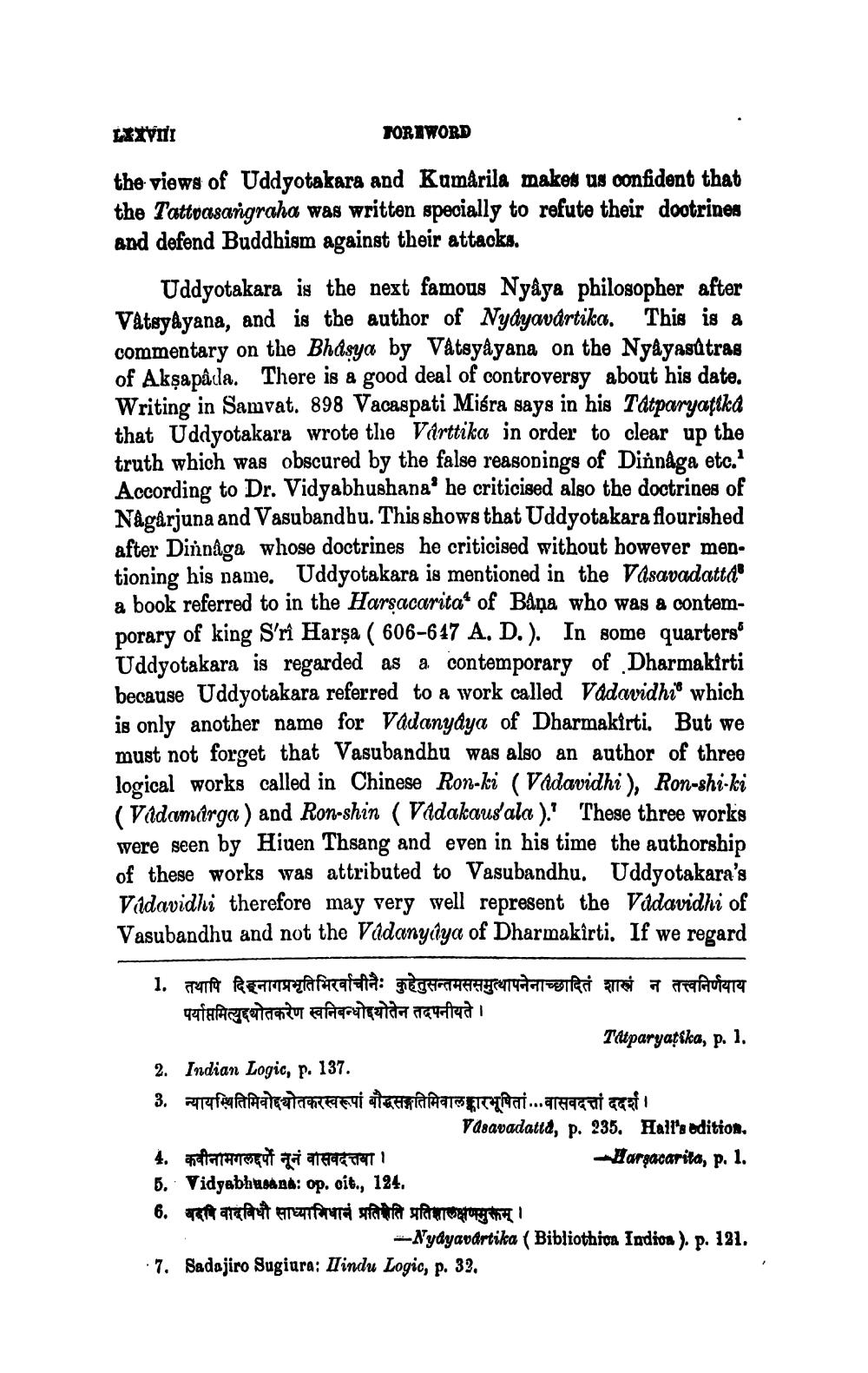________________
LXXVIII
TORIWORD the views of Uddyotakara and Kamarila makes us confident that the Tattoasangraha was written specially to refute their dootrines and defend Buddhism against their attacks.
Uddyotakara is the next famous Nyâya philosopher after Vatsyâyana, and is the author of Nydyavártika. This is a commentary on the Bhasya by Vatsyâyana on the Nyâyasátras of Akşapâda. There is a good deal of controversy about his date. Writing in Samvat. 898 Vacaspati Miéra says in his Tatparyatika that Uddyotakara wrote the Värttika in order to clear up the truth which was obscured by the false reasonings of Dinnaga etc.? According to Dr. Vidyabhushana' he criticised also the doctrines of Nagarjuna and Vasubandhu. This shows that Uddyotakara flourished after Dinnaga whose doctrines he criticised without however mentioning his name. Uddyotakara is mentioned in the Vasavadattar a book referred to in the Harsacarita. of Båņa who was a contemporary of king S'ri Harşa ( 606-647 A. D.). In some quarters Uddyotakara is regarded as a contemporary of Dharmakirti because Uddyotakara referred to a work called Vadavidhi' which is only another name for Vadanydya of Dharmakirti. But we must not forget that Vasubandhu was also an author of three logical works called in Chinese Ron-ki (Vadavidhi), Ron-shi-ki (Vadamarga ) and Ron-shin (Vadakaus'ala).' These three works were seen by Hiuen Thsang and even in his time the authorship of these works was attributed to Vasubandhu. Uddyotakara's Vadavidhi therefore may very well represent the Vådavidhi of Vasubandhu and not the Vadanyaya of Dharmakirti. If we regard
1. तथापि दिङ्नागप्रभृतिभिरर्वाचीनैः कुहेतुसन्तमससमुत्थापनेनाच्छादितं शास्त्रं न तत्त्वनिर्णयाय पर्याप्तमित्युद्दथोतकरेण स्वनिबन्धोइयोतेन तदपनीयते ।
Tatparyaţika, p. 1. 2. Indian Logic, p. 137. 3. न्यायस्थितिमिवोद्दयोतकरस्वरूपां बौद्धसङ्गतिमिवालङ्कारभूषितां...वासवदत्तां ददर्श ।
Vasavadatta, p. 235. Hall's edition. 4. startareut qa at pagtrat I
Marsacarita, p. 1. 5. Vidyabhusank: op. cit., 124. 6. बदवि वादविधौ साध्यामिधानं प्रतिक्षति प्रतिक्षालक्षणमुक्तम् ।
-Nyayavdrtika ( Bibliothioa Indion ). p. 131. 7. Sadajiro Sugiura: Ilindu Logic, p. 33.




